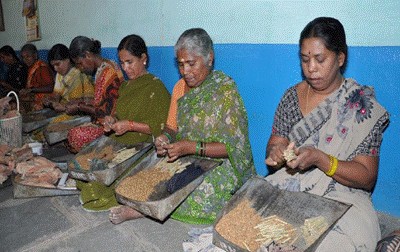Labour Welfare Schemes Extend Support to Over 50 Lakh Unorganised Workers Across India
Labour Welfare Schemes Extend Support to Over 50 Lakh Unorganised Workers Across India
The Ministry of Labour & Employment, through the Directorate General of Labour Welfare (DGLW), continues to implement a range of welfare schemes dedicated to improving the lives of unorganised workers in India, particularly in the Beedi, Cine, and Mining sectors. With a direct impact on over 50 lakh workers and their families, these schemes form a cornerstone of the government’s inclusive and compassionate labour welfare strategy.

The Labour Welfare Organisation (LWO), functioning under DGLW, administers these schemes across the country through a well-coordinated network of 18 Welfare Commissioners, who oversee implementation at the regional level. The overarching goal is to provide social protection, health services, financial assistance for education, and housing support to workers often located in remote and underserved regions.
One of the key components of the welfare framework is the Education Assistance Scheme, which provides annual scholarships ranging from ₹1,000 to ₹25,000 for the wards of Beedi, Cine, and non-coal mine workers. The scheme, implemented via the National Scholarship Portal (NSP), receives over one lakh applications every year, with direct benefit transfer (DBT) ensuring transparent and timely disbursement.
Healthcare support under the Health Scheme includes outpatient services through a national network of dispensaries, as well as reimbursement for specialized treatments for critical illnesses such as heart disease, kidney transplantation, cancer, tuberculosis, and minor surgeries. The financial assistance ranges from ₹30,000 for minor surgeries to ₹7.5 lakh for cancer treatment, ensuring access to life-saving healthcare for low-income workers.
Although the Revised Integrated Housing Scheme (RIHS) introduced in 2016 has now been sunset and merged with Pradhan Mantri Awas Yojana (PMAY), the Ministry continues to disburse pending installments to eligible beneficiaries until 31 March 2024, honoring the government’s commitment to housing dignity for all.
These targeted schemes not only improve the quality of life and social security of unorganised sector workers but also underscore the government’s vision of Sabka Saath, Sabka Vikas in action.
The Ministry reaffirms its dedication to welfare-driven governance and will continue to strengthen the framework to make it more accessible, technology-enabled, and outcome-focused in the coming years.
*****